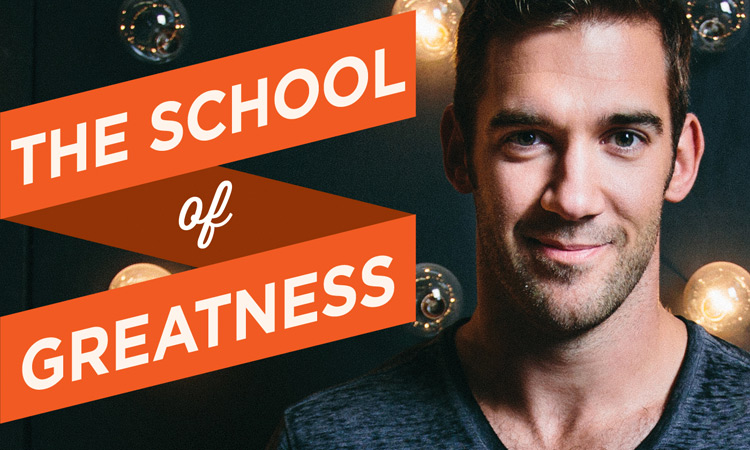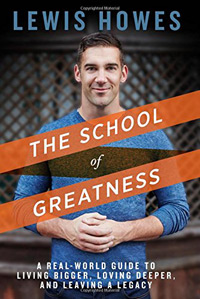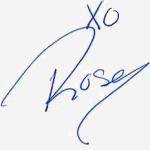
I recently had the pleasure of interviewing Lewis Howes, entrepreneur, business coach and the podcast host of “The School of Greatness.” Taking the insights from his experience and the lessons he’s learned from mentors, Lewis compiled them in a new book: The School of Greatness: A Real World Guide To Living Bigger, Loving Deeper, and Leaving a Legacy.
Talking with Lewis, I was deeply impressed by his energy and passion for his work. It’s clear that he’s rooting for people to succeed. And when I read his book, I wasn’t surprised to find that same level of enthusiasm and support.
Here is an excerpt on how Lewis turned adversity to his advantage:
I wasn’t depressed because my vision was dead. I was depressed because I hadn’t done the work to pick myself up, dust myself off, and figure out what was next. The hustle wasn’t over; it was just different and shifted in a new direction.
Soon after that epiphany, I reached out to a number of people for guidance—my father’s friends, coaches, my brother (obviously, why not go right to the source?), even the headmaster of my university, a man named Stuart Jenkins. I admired his wisdom and his moral courage. Stuart was hired to make changes and improve the university, and his decisions to cut underperforming members of the faculty were not popular. But his efforts vastly improved the academic standards of the school, and he proved to be an effective leader. He would often say to me, “Is this serving you?” rather than telling me what was right or wrong.
 During that period of uncertainty, Stuart suggested I check out LinkedIn.com, the social media website, which back then was just starting to get serious traction among business professionals. I saw all sorts of potential to connect with high-profile business owners and other professionals there, and I began connecting with people like a madman. I reached out specifically to people who worked in the sports business because I had just come from my own experiences playing professional football, and I figured that would be a strong connection point to people I’d barely heard of in some cases and, in each case, never met.
During that period of uncertainty, Stuart suggested I check out LinkedIn.com, the social media website, which back then was just starting to get serious traction among business professionals. I saw all sorts of potential to connect with high-profile business owners and other professionals there, and I began connecting with people like a madman. I reached out specifically to people who worked in the sports business because I had just come from my own experiences playing professional football, and I figured that would be a strong connection point to people I’d barely heard of in some cases and, in each case, never met.
Lucky for me, I was right and got a high rate of acceptance.In the first year, I made 10,000 connections! It was crazy but incredibly exciting. I became what Malcolm Gladwell called in his best-selling book The Tipping Point a “connector.” It didn’t happen overnight—I built these relationships one by one with passion and energy. I would meet people in person, talk to them on the phone, introduce them to others seeking their skills.
It was around this time, with my professional sports career over and my cast off, that I started making a little bit of money by hosting “LinkedIn networking events” around the country. Over the following year, I hosted 20 events in major cities, where 300 to 500 people would attend. They were amazed at how this 24-year-old former pro athlete kid with no degree was able to get so many people to show up at these professional networking events. What they didn’t know was that I was literally e-mailing my LinkedIn connections one by one to ask them to come to my events or join one of the groups I’d created to bring everyone together. I adopted the approach Chris took right after he got out of prison—there was nothing I wouldn’t do. I’d already reached my bottom, so the only direction was up. E-mailing everyone individually wasn’t sustainable at the rate I was growing, obviously, but it kick-started everything I’m doing now and taught me valuable lessons about hustle—first and foremost that you have to be willing to do the work that others are unwilling to do if you want to succeed when starting from a position of disadvantage.
I eventually built this presence on LinkedIn into an incredibly lucrative online business. I had no background in building a business, but I pulled myself up by the bootstraps, went with my gut, took advice from mentors, and worked my ass off. There were no days off, no coffee breaks. I applied Chris’s hustle strategies to the launch of the business, adjusting his tested methods to the practical realities of building a different kind of business from the ground up. The end result: The money started flowing in, when only a couple years earlier, I had no clear idea how I would ever make any money.
My inner frustrations and early fears are what drove me to hustle. I didn’t want to be a failure. I didn’t want to remain unseen. I was going to work my butt off and go through as much pain as I needed to bear. This, in part, is what powers me through a bad meeting or a failure even today. Even more so today, I’m driven by my vision to inspire others to reach their greatness, and it’s what keeps my hustle so strong even in my darkest, most difficult days.

Rose Caiola
Inspired. Rewired.
Excerpt taken from The School of Greatness: A Real World Guide To Living Bigger, Loving Deeper, and Leaving a Legacy by Lewis Howes.
To find out more about Rose’s thoughts on how to live a happier life, click here
Post Disclaimer
This content is for informational purposes only and does not constitute medical advice. Please consult a healthcare professional for any medical concerns.


2 Comments
Joe
I’ve just added this book to my amazon list, it sounds great.
Madilynn
Wow, sounds like a great book! Definitely adding this to my reading list.